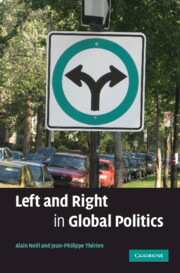Book contents
- Frontmatter
- Contents
- List of tables
- List of figures
- Acknowledgements
- Introduction
- 1 A clash over equality
- 2 A worldwide value divide
- 3 Two tales of globalization
- 4 The rise of the modern state system (1776–1945)
- 5 The age of universality (1945–1980)
- 6 The triumph of market democracy (1980–2007)
- 7 Twenty-first-century rapprochement
- 8 The core currency of political exchange
- Conclusion
- Index
- References
5 - The age of universality (1945–1980)
Published online by Cambridge University Press: 05 September 2012
- Frontmatter
- Contents
- List of tables
- List of figures
- Acknowledgements
- Introduction
- 1 A clash over equality
- 2 A worldwide value divide
- 3 Two tales of globalization
- 4 The rise of the modern state system (1776–1945)
- 5 The age of universality (1945–1980)
- 6 The triumph of market democracy (1980–2007)
- 7 Twenty-first-century rapprochement
- 8 The core currency of political exchange
- Conclusion
- Index
- References
Summary
At the end of the Second World War, the United States was in a unique position. As the unchallenged global power, it controlled about half of the world's production, dominated in most technologies and resources, and disposed of a victorious and powerful army. “Today,” wrote British scholar Harold Laski in December 1947, “literally hundreds of millions of Europeans and Asiatics know that both the quality and the rhythm of their lives depend upon decisions made in Washington.” The Americans would indeed play a central role in the shaping of a postwar order governed by new international norms and institutions. Many uncertainties and tensions remained, however, some inherited from the unresolved conflicts of the inter-war years, others from the new alignment of forces that emerged from the war.
Chief among these uncertainties was the challenge posed to the new hegemonic power by the rise and assertion of its former ally and now rival, the Soviet Union. “At the present moment in world history,” President Harry Truman told a joint session of Congress in March 1947, “nearly every nation must choose between alternative ways of life…I believe that it must be the policy of the United States to support free peoples who are resisting attempted subjugation by armed minorities or by outside pressures.” The Cold War conflict Truman announced was profound and universal. It defined what Kemal Dervis, former Turkish Minister of the Economy and then head of the United Nations Development Programme (UNDP), aptly described as an enduring “global ideological battle.”
- Type
- Chapter
- Information
- Left and Right in Global Politics , pp. 107 - 136Publisher: Cambridge University PressPrint publication year: 2008



